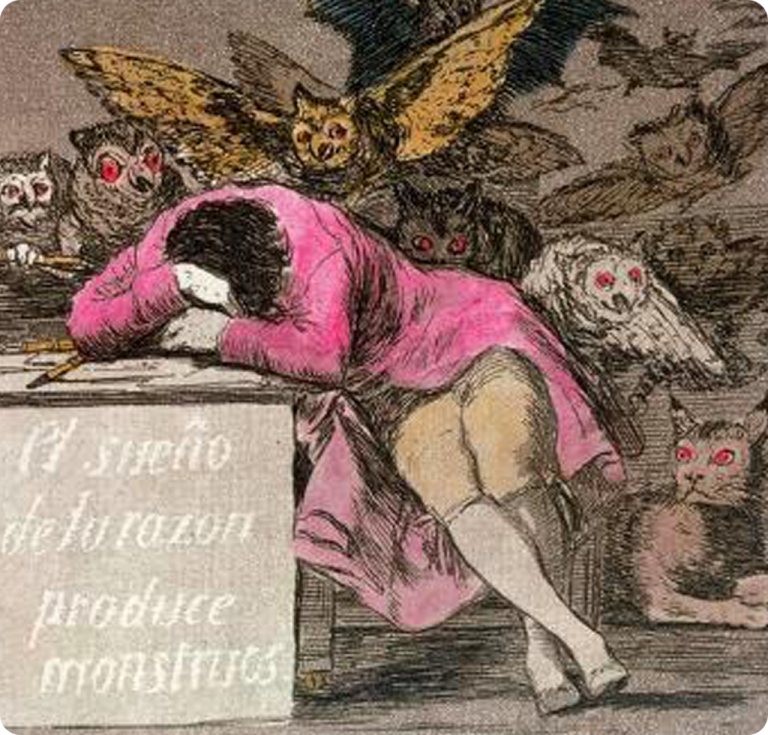Although we get what Jung means when he talks about “living under the negative influence of a major complex,” Jung often said he preferred the term “curse” (as compared to the newer psychological language), because the old term did a better job of conveying the experience of pain and suffering of real people.
In this course, we will explore what it means to live in the persistent grip of a dark and unhappy pattern, and how three such patterns can best be resolved, redeemed, and overcome.
We will start with the most well-known, the infamous “Family Curse,” which is a destructive pattern that lives on through generations and is placed in the crib of the newborn at the moment of birth (or before!). We will ask the questions: How do we extract our personal fate and identity from that of our family of origin? How do we “humanize” a long-lasting curse?
Then we will look at curses about love, such as seeking but not finding the proper mate, getting involved in a repetitive series of bad relationships, and missing out on the call to love and be loved. Opportunities for love are abundant, says Jung, so the resolution of a “love complex” is a prerequisite for life to flow about relationships. In such cases, the “bewitchment” of consciousness requires work before love can unfold as a natural process. We will discuss how the therapeutic encounter has the benefit of de-potentiating the energy of a curse by shining the light of consciousness on what was seeking to be known through the curse.
As a third topic, we will examine curses about career and profession, such as not finding work commensurate with one’s gifts, lacking avenues for self-expression at work, finding too much opposition in the outer world–such as struggling to make a living despite having intelligence and even talent–and the reverse, i.e. missing out on the experience of doing meaningful work even though outer success has been achieved.
In exploring solutions to these three curses, we will follow Jung’s idea that there is a positive core underneath fateful negative complexes and that solutions arise as a synthesis out of the conflict between opposites. Here is how he describes it:
“In the psychology of the individual there is always, at such moments, an agonizing situation of conflict from which there seems to be no way out—at least for the conscious mind, since as far as this is concerned, tertium non datur. But out of this collision of opposites the unconscious psyche always creates a third thing of an irrational nature, which the conscious mind neither expects nor understands. It presents itself in a form that is neither a straight “yes” nor a straight “no,” and is consequently rejected by both. For the conscious mind knows nothing beyond the opposites and, as a result, has no knowledge of the thing that unites them. Since, however, the solution of the conflict through the union of opposites is of vital importance, and is moreover the very thing that the conscious mind is longing for, some inkling of the creative act, and of the significance of it, nevertheless gets through.”
(C.G. Jung, Collected Works, Vol. 9i, paragraph 285)
We will discuss examples of those “inklings” and how they first appear as seemingly unlikely solutions to family curses, love problems, and career dilemmas. Then as the solutions take hold (provided they do!), we will look at their most valuable dimensions for personal growth, and we will draw some conclusions about the nature of transformation of a curse.
The examples and illustrations in the course will include dreams of people who overcame the burden of comprehensive complexes. The readings, in the form of handouts provided by the instructor, will be from Jung’s and Marie-Louise Von Franz’s writings on this topic.
Supplemental Reading:
The Psychology of a Fairy Tale, David Hart
The Cat: A Tale of Feminine Redemption, Marie-Louise Von Franz
The Psychological Meaning of Redemption Motifs in Fairytales, Marie-Louise Von Franz
The Way of the Image, Yoram Kaufmann
5 consecutive Mondays, 7:00 – 8:30 pm, Eastern Time, USA
Online only via Zoom.



